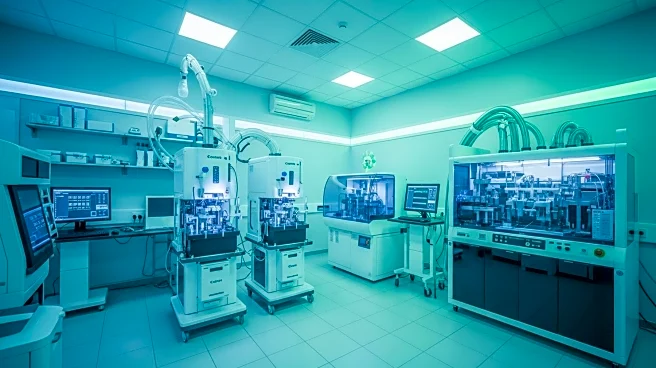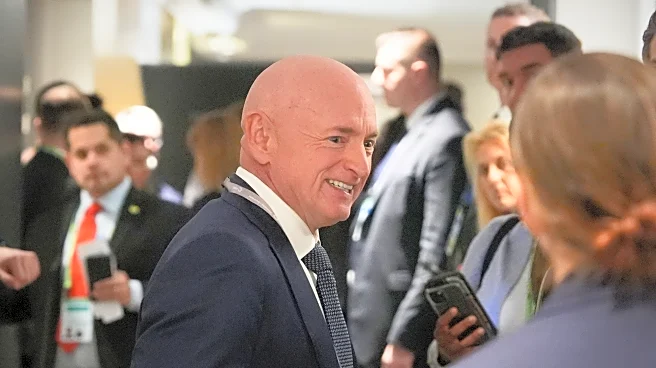What's Happening?
Myriad Genetics and SOPHiA GENETICS have announced a strategic partnership to develop a global liquid biopsy companion diagnostic (CDx) test. This collaboration aims to leverage Myriad's laboratory capabilities in the U.S. and SOPHiA GENETICS' extensive network of over 800 institutions across 70 countries. The focus will initially be on the liquid biopsy application, MSK-ACCESS® powered with SOPHiA DDM™, developed in collaboration with Memorial Sloan Kettering Cancer Center. This test detects genomic alterations from a single blood draw using advanced algorithms to analyze circulating tumor DNA (ctDNA). The partnership seeks to expand access to high-quality tumor profiling tests, advancing personalized healthcare globally.
Why It's Important?
The collaboration between Myriad Genetics and SOPHiA GENETICS is significant as it aims to enhance the availability of precision medicine through innovative diagnostic solutions. By developing the liquid biopsy application into a CDx, the partnership could improve patient access to personalized healthcare, potentially impacting cancer treatment outcomes. This initiative supports the growth of Myriad's CDx programs and offers pharmaceutical partners access to regulated markets worldwide. The hybrid model proposed by the collaboration could accelerate the adoption of liquid biopsy solutions, benefiting both clinical and pharmaceutical stakeholders.
What's Next?
Myriad Genetics will pursue regulatory submissions in the U.S., while SOPHiA GENETICS will handle submissions outside the U.S. Both companies will collaborate on development activities, aiming to provide pharmaceutical partners with access to key regulated markets globally. The partnership will be discussed further at the World CB and CDx Summit in Boston, where additional details will be shared. This collaboration represents a pivotal moment for the industry, potentially setting a new standard in companion diagnostics.
Beyond the Headlines
The partnership between Myriad Genetics and SOPHiA GENETICS highlights the growing importance of AI in healthcare, particularly in precision medicine. The use of AI-driven algorithms to analyze complex genomic data could lead to more accurate and timely diagnoses, improving patient outcomes. This collaboration also underscores the trend towards global healthcare solutions, leveraging technology to bridge gaps in access to advanced medical care.










